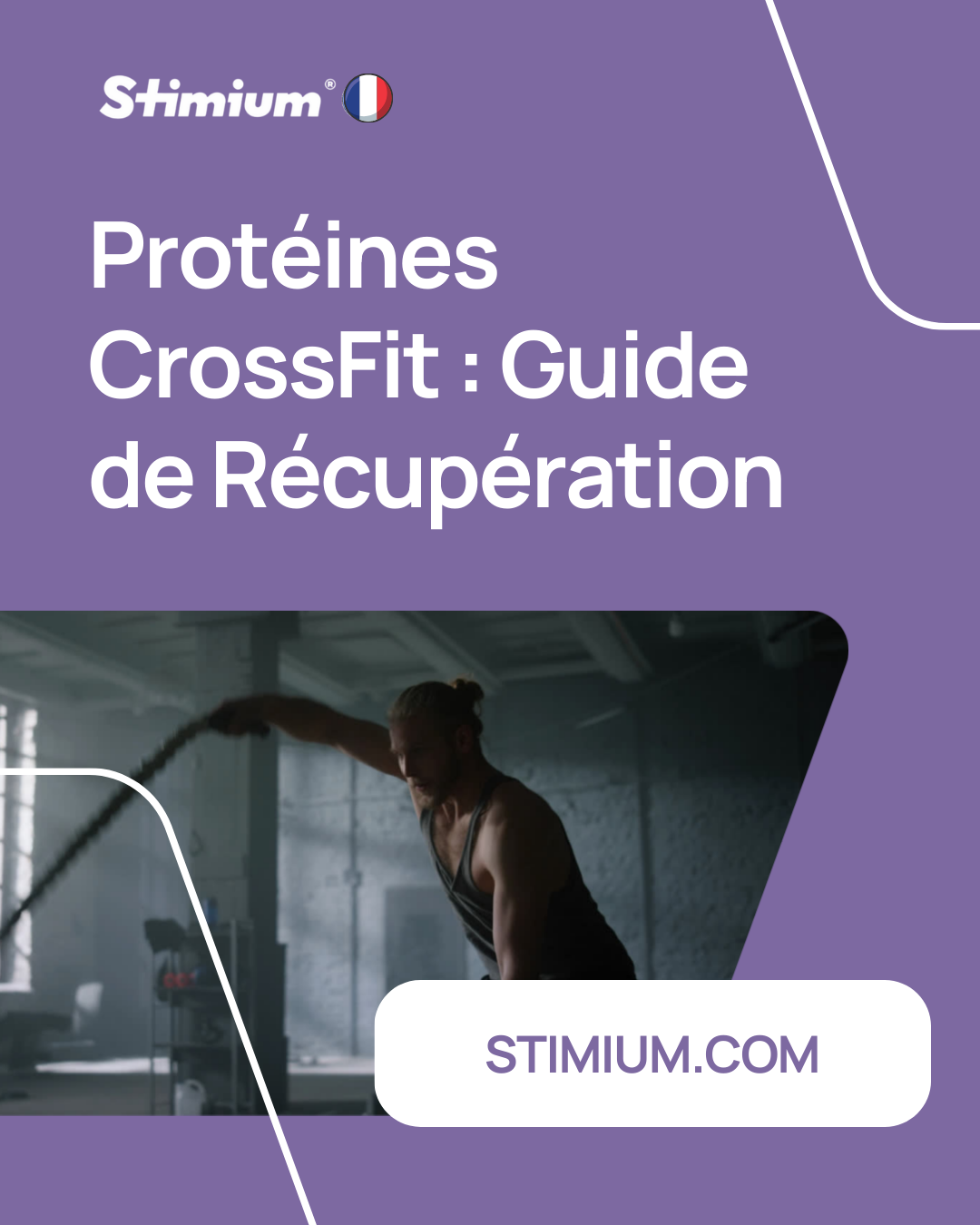Proteins for Weight Loss: Our Complete Guide
Protein is an essential component when looking to lose weight effectively and healthily. They can help you lose weight while preserving your health. In this article, we will provide you with a complete guide on using protein for weight loss. We'll cover the best protein sources, protein supplements, recommended doses, and eating strategies for lasting weight loss.
Key points to remember:
- Protein plays an essential role in weight loss and can help you lose weight effectively while maintaining health.
- Protein sources such as whey protein, casein protein and plant proteins are particularly beneficial for weight loss.
- Protein promotes satiety, increases metabolism and preserves muscle mass, thus contributing to weight loss.
- It is recommended to consume between 0.8 and 1.6 grams of protein per kilogram of body weight per day.
- Protein shakes can be used as meal replacements or dietary supplements to promote weight loss.
The best proteins for weight loss
Proteins are valuable allies in the quest for weight loss. They play an important role in building and repairing muscle tissue, while providing a longer-lasting feeling of fullness than carbohydrates or fats.
When it comes to choosing the best proteins for weight loss, whey protein is often considered a must-have. It is appreciated for its high quality, its richness in essential amino acids and its speed of absorption by the body. Whey protein is ideal for optimal muscle recovery, especially after intense training.
Another popular protein for weight loss is casein protein. Unlike whey protein, casein is digested more slowly, allowing for a gradual release of amino acids into the body. This slow release promotes satiety and can help control appetite between meals.
For those following a vegetarian diet or who are lactose intolerant, there are also many plant-based proteins that are great alternatives. Plant proteins from sources such as peas, rice, hemp and soy offer high protein content and are often easy to digest.
Finally, post-workout protein is also essential to promote muscle recovery and optimize training results. These specific proteins are designed to be quickly absorbed by the body, allowing for more efficient muscle repair.
How Protein Helps Lose Weight
Protein plays a key role in weight loss due to its many beneficial effects on metabolism, satiety, muscle mass, hunger hormones and food choices.
Impact on metabolism
Proteins have a high thermogenic effect, meaning that their digestion and metabolism require more energy than sugars or fats. This increased metabolism helps burn more calories and promote weight loss.
Satiety effect
Protein promotes satiety, which can help reduce the urge to snack between meals. Adequate protein consumption helps regulate appetite and control food intake, thus facilitating weight loss.
Preservation of muscle mass
Protein helps preserve muscle mass during weight loss. Muscles have a higher metabolism than fat, even at rest. Maintaining adequate muscle mass promotes calorie burning and weight loss.
Influence on hunger hormones
Protein impacts hunger and satiety hormones. They increase the production of the satiety hormone and reduce the production of the hunger hormone, which can help reduce feelings of hunger and increase feelings of fullness.
Healthier Food Choices
A diet rich in protein generally promotes healthier food choices. Protein sources like lean meats, legumes, and low-fat dairy products are often associated with reduced saturated fat and calorie intake, contributing to more effective weight loss.
In conclusion, protein plays a vital role in weight loss through its effect on metabolism, satiety, muscle mass preservation, hunger hormones and food choices. Integrating quality protein sources into your diet can therefore be beneficial for achieving your weight loss goals in a healthy and sustainable way.
How much protein to eat to lose weight
The amount of protein needed to lose weight varies depending on factors such as age, gender, physical activity level, muscle mass and personal goals. To achieve your weight loss goals, it is important to understand your protein needs and incorporate them in a balanced way into your diet.
Dietary guidelines suggest an intake of approximately 0.8 to 1.6 grams of protein per kilogram of body weight per day. This means that a person weighing 70 kilograms should consume between 56 and 112 grams of protein per day. However, it is important to consult a healthcare professional or nutritionist for specific recommendations based on your individual situation.
It is also essential to spread your protein intake throughout the day. To maximize the weight loss benefits of protein, it is recommended to consume balanced amounts of protein with each meal. This will help maintain a consistent supply of essential amino acids and support protein synthesis.
To get complete and varied proteins, be sure to include different sources in your diet. Animal proteins, such as meat, fish, eggs and dairy, are considered complete sources because they provide all essential amino acids. Plant-based proteins, such as legumes, whole grains, nuts and seeds, can also be a great option to supplement your protein intake.
The important thing is to choose high-quality protein sources and incorporate them into a balanced diet that also includes fruits, vegetables, whole grains and healthy fats. A healthy, balanced diet combined with adequate protein intake can help you lose weight in a healthy and sustainable way.
Protein shakes to lose weight
Protein shakes are effective tools for weight loss. They can be used as meal replacements or dietary supplements. Protein shakes are handy for controlling calories and increasing satiety, which can help reduce cravings and limit overeating. Additionally, these shakes are designed to help preserve muscle mass during weight loss, which is essential for maintaining a high metabolism.
Protein shakes contain a balanced amount of proteins, carbohydrates and fats, thus providing complete and balanced nutrition. They can also be enriched with essential vitamins and minerals to support overall health during the weight loss period. These supplements come in a variety of flavors, making them enjoyable to consume, even while on a restrictive diet.
Using protein shakes as meal replacements can make calorie management easier because they provide precise control of energy intake. This can be especially helpful for busy people or those who struggle to prepare healthy, balanced meals. Additionally, the high protein content of shakes promotes satiety, which can help reduce cravings and maintain a controlled diet.
To choose the protein shake best suited to your needs, it is important to consider your weight loss goals, food allergies, and personal preferences. Whey protein shakes are the most common choice and provide rapid protein absorption. However, people with lactose intolerance or following a vegan diet can opt for plant-based protein alternatives, such as peas or rice.
It is recommended to consult a healthcare professional or nutritionist before incorporating protein shakes into your weight loss plan. They will be able to guide you on the quantity to consume, the best way to use them and provide you with personalized advice based on your situation.
The dangers of extreme protein diets
Extreme protein diets can pose health risks. When adopting a protein diet for weight loss, it is essential to exercise caution and not fall into overconsumption of protein.
One of the possible consequences of overconsumption of protein is kidney fatigue. The kidneys, responsible for filtering waste from the body, can be put under excessive strain from excess protein. This can lead to a reduction in their optimal functioning.
Additionally, extreme protein diets, which may be high in animal proteins, may contribute to the development of cardiovascular disease. Animal proteins, particularly red meats, are often associated with increased cholesterol levels and systemic inflammation in the body.
Constipation is another common side effect of extreme protein diets. Animal proteins tend to contain little or no fiber, which can lead to problems with intestinal transit.
Additionally, extreme protein diets can lead to nutritional deficiencies. Focusing only on protein can overlook other essential nutrients found in other food groups, such as fruits, vegetables and grains.
Conclusion
Protein is a valuable asset for weight loss and overall health. By integrating protein in a balanced way into your diet, you can promote satiety, preserve muscle mass, increase your basal metabolism and regulate your blood sugar.
Protein is essential for achieving your weight loss goals sustainably. They help you control your appetite, avoid cravings and maintain a balanced diet. Protein can also help you maintain muscle mass, which is important for burning calories even when resting.
Remember to choose varied protein sources, such as whey protein, casein protein and plant proteins. Include protein in all your meals and snacks to maximize their benefits.
For effective and lasting weight loss, combine a balanced diet rich in protein with regular physical activity. Consult a healthcare professional or nutritionist to establish an eating plan tailored to your specific needs and ensure you maintain optimal overall health.
FAQs
What role does protein play in weight loss?
Protein plays a vital role in weight loss by promoting satiety, preserving muscle mass, increasing metabolism and regulating blood sugar.
What are the best sources of protein for weight loss?
The best sources of protein for weight loss include whey protein (whey protein), casein protein, plant proteins (pea, rice, hemp, soy) and post-workout proteins for muscle recovery.
How Does Protein Help With Weight Loss?
Protein has several beneficial effects for weight loss, such as a high thermogenic effect, increased satiety, preservation of muscle mass, influence on hunger hormones, and influence on food choices.
How much protein should you eat to lose weight?
The amount of protein needed to lose weight varies depending on several factors, but dietary guidelines suggest an intake of approximately 0.8 to 1.6 grams of protein per kilogram of body weight per day.
Are protein shakes effective for losing weight?
Yes, protein shakes can be effective for weight loss as meal replacements or dietary supplements. They help control calorie intake, increase satiety and preserve muscle mass.
How important is a balanced diet for weight loss?
A balanced diet is essential for weight loss and overall good health. Protein should be integrated in a balanced manner among other nutrients to support weight loss goals in a healthy and sustainable way.







